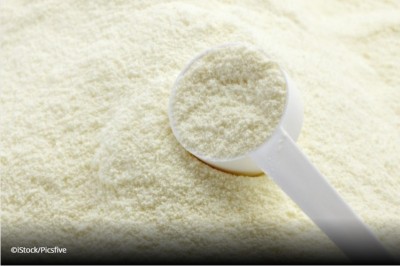Mechanism may explain diet-HMO role in enhancing milk benefits for baby

Writing in Nature Scientific Reports, the team provide evidence suggesting changes to HMOs go on to modify the milk microbiome’s functions as well as forming a healthy gut microbiome in the newborn.
“HMOs are basically inert substances to a mother or her baby,” explains senior study author Dr Kjersti Aagaard, Professor of molecular and human genetics at Baylor.
“However, they exert their health benefits by acting as food or fodder to microbes -- both bacteria and some viruses.
“This appears to be an example where what we eat affects our microbes via an intermediate (the HMOs), which we make but don't directly benefit from. It gives us a fascinating glimpse into what we and others believe is a natural co-evolution process."
The milk microbiome plays a critical role in decreasing necrotizing enterocolitis, and later in life chronic diseases, and immune function.
Research looking into infant stool microbiome of breastfed newborns finds significant variation from formula fed babies, driven by the diverse microbial nutrients in human milk.
Despite its importance, very few studies have explored the impact of maternal diet on HMOs and the milk microbiome as well as how they alter the neonatal and infant gut microbiome.
Strong evidence points to HMOs beneficial role in infant health by encouraging beneficial bacteria growth, acting as “decoys” for pathogenic microbes, providing substrates essential for infant development, and establishing and maintaining the gut epithelial barrier.
Study details
The Baylor College of Medicine team began by giving breastfeeding mothers meals as part of a particular diet for 30 to 70 hours. After two-weeks the same woman were given a different diet to follow.
The team collected milk samples from each mother at different times to help the team monitor the amount of HMOs created by each woman as well as avoid confusing milk microbes with environmental contaminants.
Results identified possible maternal carbohydrate and energy sources in the diets, which altered the milk concentrations of HMOs. This was accompanied by changes in the metabolic capacity of the milk microbiome.
"It is not that the maternal diet itself is directly affecting the microbes, but that the diet affects the microbes' food, the HMOs,” explains first author Dr Maxim Seferovic, instructor of obstetrics and gynecology at Baylor.
“This in turn shapes the functional capacity of the community of microbes in the milk that will be consumed by the baby.
“Interestingly, the changes in HMO occurred quickly, in a matter of 2 to 3 days, after the mothers changed their diet."
Lactation evolutionary role
In discussing the findings’ significance, the team highlighted the mechanism as a way humans are able to sustain production of certain oligosaccharides during a limited but crucial interval of reproduction (lactation).
“Lactation is evidently solely for the purpose of feeding commensal microbes present in human milk and the infant digestive tract,” the team writes.
“Given that HMO require significant energy expenditure on the part of the mother, these findings lead us to speculate that the maternal diet may tailor the composition of the milk metagenome via HMO speciation not only for the high physiological value for the infant, but for her own potential benefit in the prevention of pathogen colonisation.
The paper goes on to state that the findings underscore the possibility for the maternal diet to alter infant and maternal microbial ecology even after birth via the milk and its macromolecular components.
“One other exciting aspect of our study is the suggestion that HMOs seem to preferentially affect the growth potential of microbes that may also impart health risk or benefit for the mother,” adds Dr Aagaard.
“For instance, by shaping the community of microbes in the milk in ways that may favour the growth of certain beneficial microbes via the simultaneous exclusion of those that cause mastitis during breastfeeding."
Source: Nature Scientific Reports
Published online: doi.org/10.1038/s41598-020-79022-6
“Maternal diet alters human milk oligosaccharide composition with implications for the milk metagenome.”
Authors: Maxim Seferovic et al.















